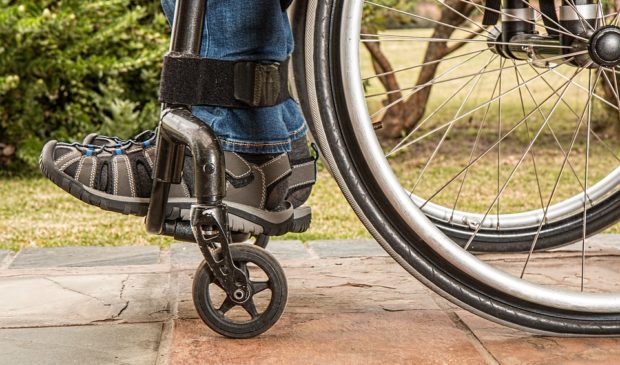Disability committee pushes city to help address evictions
Monday, July 22, 2019 by
Chad Swiatecki Advocates for the disabled community are pushing the city’s departments in charge of housing services to find ways to decrease the number of evictions their community experiences while also adding housing supply designed for accessibility.
At this month’s meeting of the Mayor’s Committee for People With Disabilities, a presentation from the city’s Innovation Office and the Neighborhood Housing and Community Development Department turned to urging from members to offer legal and financial assistance for renters with disabilities.
That response came after a presentation that showed renters with disabilities experience 50 percent of court-ordered evictions in the Austin area, according to a 2013 federal study, despite making up only 13 percent of the total rental population. That number likely climbs higher when tracking data on so-called “informal” evictions that occur when a property owner tells a renter to move with no legal paperwork or when a property is condemned or goes into foreclosure.
Committee member Deborah Trejo said Neighborhood Housing and Community Development and other city offices connected to housing issues should work to enact specific plans for lowering the amount of evictions for disabled renters, which then contributes to the city’s growing homelessness problem.
“The extreme disproportionality of people with disabilities being evicted in Austin demonstrates the need for more affordable housing targeted at people with disabilities,” she said.
“We asked the housing department specifically about affordable housing and whether there was any criteria for people with disabilities and the answer was no. It seems there a need for more extra-affordable housing … your data is telling you this is an area that needs to be addressed. It blows my mind, the lack of the city’s focus on people with disabilities, and we just keep hearing it again.”
James May, community development manager for NHCD, said developments receiving city funding are given extra considerations for including units designed for mobility and sensory accessibility, but state laws and other considerations prevent the city from getting involved in the selection and leasing process for specific units.
Committee member Joey Gidseg said the city should make legal help readily available for disabled renters facing any kind of housing uncertainty.
“We have done lots of research into remedies elsewhere and have noticed that civil legal aid is a really big issue,” Gidseg said. “Access to appointing legal representation through the city to anyone who is either facing eviction or if you’re in the 76 percent where it’s informal … if somebody can’t afford access to a lawyer to say ‘Is this real?’ and they move out because they don’t know what to do … that would be great to look into.”
Innovation team member Alba Sereno said the team’s research shows financial assistance is likely to be of equal or greater help than legal aid since 95 percent of evictions are caused by payment issues. She pointed to payment assistance from Austin Public Health for back rent and utility bills as one option.
The team’s data show the median amount outstanding for evictions in Travis County is $1,313, with 6,707 evictions last year bringing the total amount of delinquent payments to $7.8 million.
“We don’t want to say that just giving people a lawyer will solve their problem,” Sereno said. “We want to be cognizant that if there’s a fiscal need we have to address that.”
The presentation was intended to outline the work the two departments have completed to develop 15 strategies to address evictions, displacement and gentrification in the Austin area. Some of those include issuing mini grants at the neighborhood level to fund small satellite or pilot programs, using money from the city’s Housing Trust Fund, and teaming with nonprofit groups such as Measure Austin and Built With Humanity to identify the biggest needs in communities that are being underserved by the city.
The Austin Monitor’s work is made possible by donations from the community. Though our reporting covers donors from time to time, we are careful to keep business and editorial efforts separate while maintaining transparency. A complete list of donors is available here, and our code of ethics is explained here.
You're a community leader
And we’re honored you look to us for serious, in-depth news. You know a strong community needs local and dedicated watchdog reporting. We’re here for you and that won’t change. Now will you take the powerful next step and support our nonprofit news organization?






